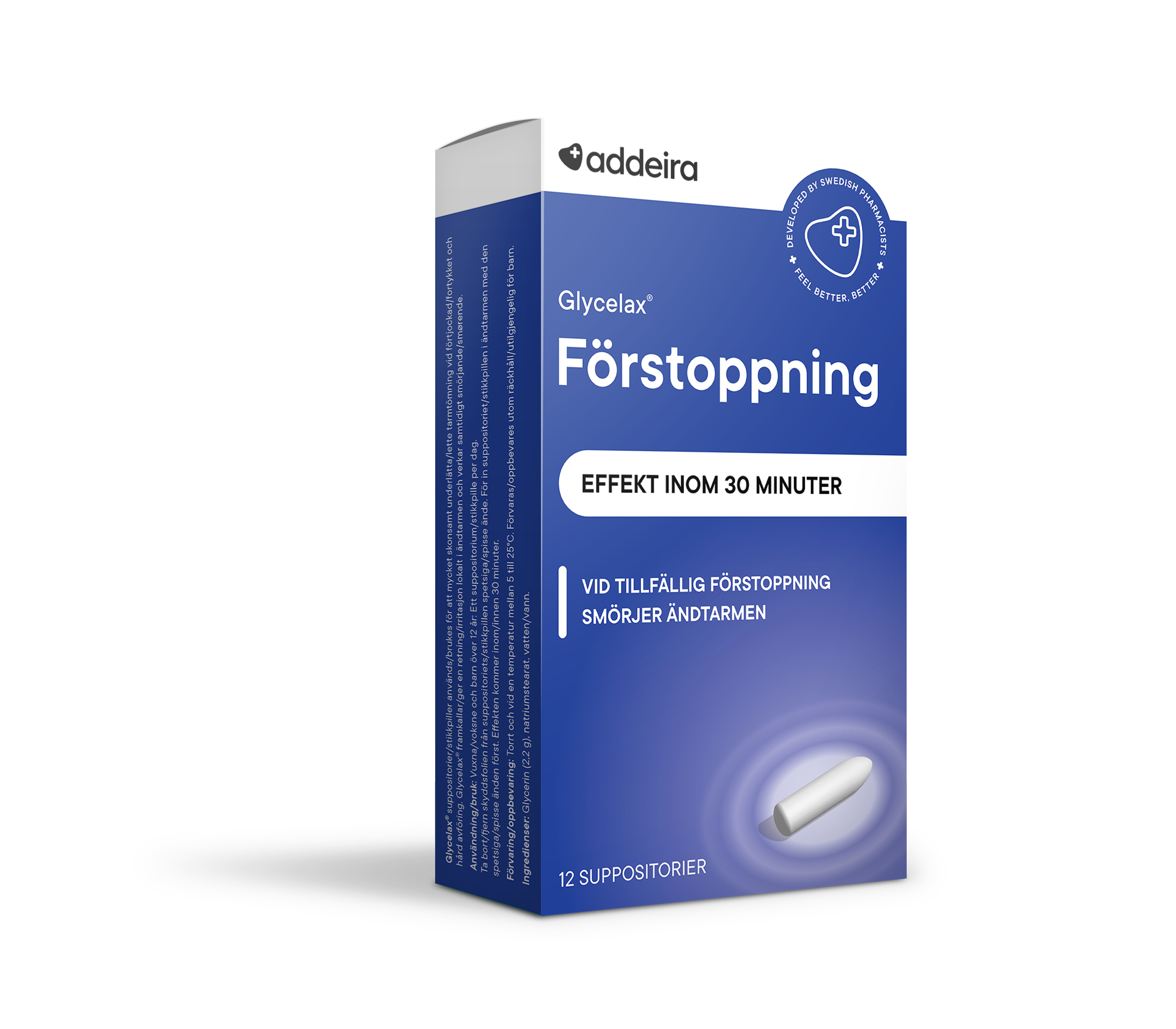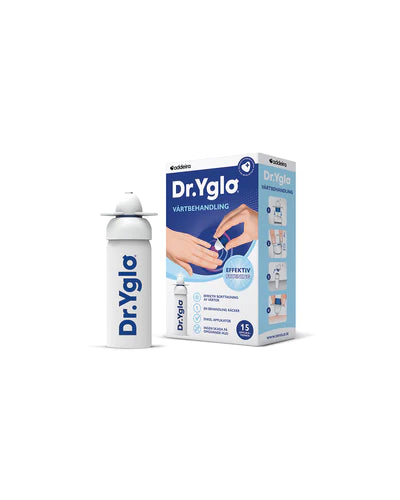Breaking the Constipation Silence: Effective Measures for Relief and Management at All Ages

Constipation is a common problem that affects people of all ages, but it is especially common in children and the elderly. When you suffer from constipation, you experience difficulty emptying your bowels, which can be painful and disturbing. This condition is usually harmless and can be managed through a combination of lifestyle changes, dietary adjustments and over-the-counter medications.
Symptoms of constipation:
-
Hard and sluggish poo: Constipation is usually characterized by problems emptying the bowels, which leads to the stool becoming hard and difficult to pass.
-
Rectal pain: When you suffer from constipation, you may experience rectal pain during bowel movements.
-
Feeling of incomplete bowel emptying: After you have been to the toilet, it may feel like the bowel has not emptied completely.
-
Abdominal distension: Many people with constipation experience a feeling of bloating and distention in the abdomen.
-
Stomach pain and nausea: Constipation can cause stomach pain and in some cases lead to nausea and loss of appetite.
-
Fissures in the rectal opening: The prolonged pressure of constipation can lead to fissures in the rectal opening, which can cause bleeding.
Causes of constipation:
Constipation can be triggered by various factors, including:
-
Inadequate fiber intake: A diet lacking sufficient fiber can lead to constipation.
-
Inadequate fluid intake: Not drinking enough fluid can affect bowel movements and increase the risk of constipation.
-
Sedentary lifestyle: Lack of physical activity can contribute to constipation.
-
Changes in routines or lifestyle: Travel, stress, pregnancy or changes in daily routines can affect bowel function.
Glycelax:
Glycelax is designed to enable a quick and gentle bowel emptying. By acting locally in the rectum, Glycelax causes an irritation while having a lubricating effect, which facilitates the passage of stool. This fast-acting suppository is specially designed to provide relief within a maximum of 30 minutes.
Glycelax contains the active substance glycerin to effectively relieve temporary constipation. Suppositories offer a gentle and local laxative action in the rectum, which makes them especially useful as the first step in the treatment ladder for temporary constipation.
Glycerin, the main ingredient in Glycelax, acts in several ways in the lower intestine:
-
Irritation of the rectal mucosa: Glycerin irritates the rectal mucosa, which facilitates contraction of the rectum and thereby facilitates bowel movements.
-
Osmotic effect: By creating an osmotic effect, Glycerin absorbs water and thereby increases stool volume. This results in softer stools and stimulates bowel movement.
-
Lubricating and softening effect: Glycerin has a lubricating effect on the intestinal mucosa and rectum, which further facilitates the passage of stool.
An important aspect to note is that Glycelax only contains vegan ingredients. This makes it a suitable choice for those who prefer or need to avoid animal products.
When should you seek care?
For most people who experience temporary constipation, there is no need to seek medical attention, as the symptoms usually resolve on their own.
However, it is advisable to contact a healthcare center according to 1177.se if you experience constipation and at the same time have any of the following symptoms:
-
Constipation does not improve despite attempts at self-care.
-
Nocturnal stomach ache.
-
Unexplained weight loss.
-
Blood in the stool.
Also seek medical care if your bowel habits change for no apparent reason, especially if you are 45 or older. Changes in bowel habits can vary:
-
Increased frequency of constipation despite previously normal bowel habits.
-
Changed consistency and appearance of the stool, with periods of both hard and loose bowels.
Being aware of and reporting such changes to healthcare is important to rule out any underlying health problems and ensure appropriate treatment.
What can you do yourself?
1177.se recommends certain measures that you can take yourself to relieve constipation. However, it may take time for the constipation to improve.
-
Increase fluid intake: Drink enough fluid, preferably an extra glass of water with each meal. Sometimes it may be necessary to drink even if you do not feel thirsty, especially if you are older and may not always perceive the signs of thirst.
-
Fiber-rich and laxative diet: Consume fiber-rich and laxative foods when constipated. Examples of such foods include vegetables such as carrots, broccoli, cauliflower, beans and peas, as well as fruits such as prunes, figs, apricots and pears. Use whole grain products in cooking, such as whole grain pasta, wholemeal bread and various coarse grains and seeds in muesli.
-
Reduction of stopping foods: Avoid or reduce the intake of food products with a lot of white flour, such as pasta and light bread, white rice, tea and blueberries.
-
Physical activity: Regular physical activity promotes healthy bowel function.
-
Go to the bathroom when you need to: Avoid holding back from pooping when the need arises to prevent worsening constipation.
-
Reduce stress levels: Understand and manage stress or anxiety, as these factors can contribute to occasional constipation.
By incorporating these measures into your daily routine, you can effectively manage and reduce constipation. If symptoms persist or worsen, you should seek professional medical advice for further evaluation and guidance.
Constipation in children:
Children are particularly prone to experience constipation. Common symptoms include abdominal pain, which can sometimes be difficult for parents to associate with constipation. It is important to pay attention to changes in the child's stool pattern and seek medical help if necessary.
Changes can be, for example:
-
Infrequent stools: The child poops less than three times per week.
-
Difficulty defecating: The child experiences difficulty or discomfort when emptying the bowels. The stool is hard and difficult to pass and defecating is experienced as painful. This can be shown by the child showing reluctance and being sad on this occasion.
-
Large amount of stool during bowel movement: It can cause toilet blockage due to the increased amount of stool.
-
Stomach pain and loss of appetite: The child may experience stomach pain and may not want to eat.
-
Cracks around the opening of the rectum: This can lead to bleeding and traces of blood in the stool or on the toilet paper.
-
Urinary tract problems: The hard poo can affect the bladder, which can result in frequent urination or urinary incontinence and increase the risk of urinary tract infections.
-
Loose poo in the underwear: When constipated, loose poo can leak past the hard lump of stool in the rectum, and this can be mistaken for diarrhea.
Being aware of these symptoms is important for early identification and management of constipation in children, which can avoid complications and provide necessary care.
Glycelax Kids:
Glycelax Kids are designed to help with temporary constipation in children from 1 year of age and contain the active substance Glycerin. Glycerin exerts a laxative effect in the rectum by:
-
Rectal mucosal irritation: Facilitates rectal contraction and bowel emptying.
-
Osmotic effect: Absorption of water increases stool volume and produces a softer stool, which stimulates bowel movement.
-
Lubricating and softening effect: Acts on the intestinal mucosa and rectum.
Glycelax Kids contains exclusively vegan ingredients and is a safe alternative to facilitate bowel movement in children from 1 year of age with temporary constipation.
What can you do yourself?
In order to manage constipation in children according to 1177.se, it is important to adapt the measures to the child's age and dietary habits. If the constipation is long-term or recurrent, there are several strategies to consider.
Infants receiving breast milk formula may benefit from gentle abdominal massage during bowel movements. If possible, switch to formula to see if it softens the stool. Consult a nurse at the childcare center for advice on softer options.
For children over six months, you can introduce fruit purees such as prunes, figs or pears to facilitate bowel movements. Gradually increase flavor portions and reduce in case of constipation. Include fiber and whole grains in your child's diet to promote bowel movements.
Make sure the child gets enough water, especially if the diet contains increased amounts of fiber. Reduce the amounts of foods that can lead to constipation, such as products with a lot of white flour, white rice and bananas. Promote physical activity in the child to support bowel movements.
Establish regular toilet habits to facilitate bowel movements, especially after meals. Create a relaxed environment in the toilet to reduce any anxiety. Try to get the child to be physically active to promote bowel movements and maintain regular routines to facilitate bowel movements.








